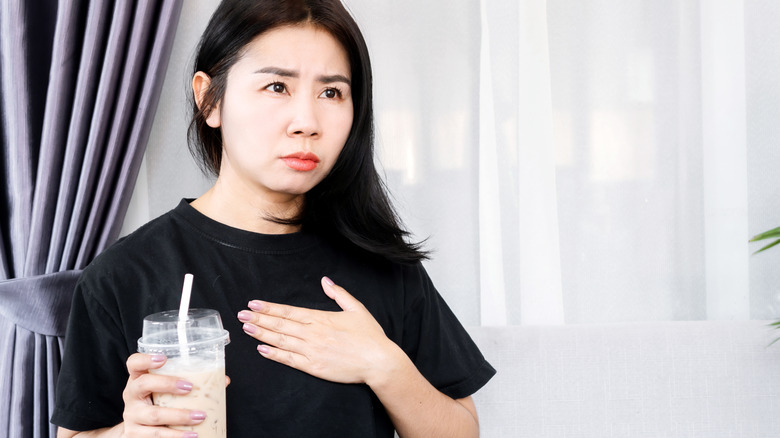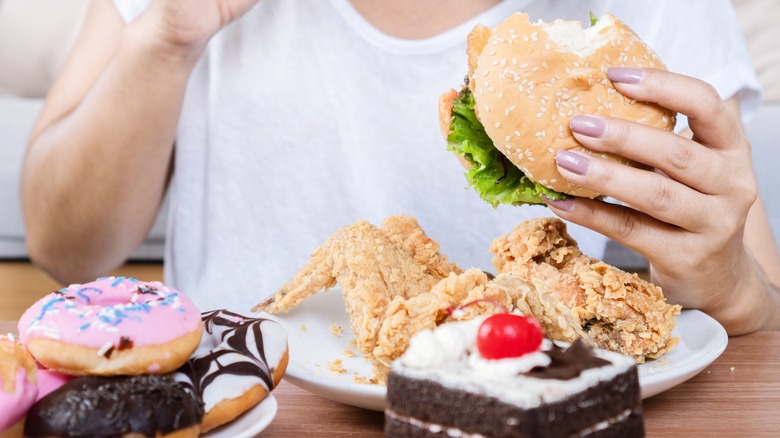What It Means When Your Heart Races After You Eat
While exercising and engaging in relaxation techniques can help you maintain a normal heart rate, you may notice that your pulse spikes after consuming a meal. Depending on what foods you eat, your heart could beat so fast that it feels like it's racing or pounding against your chest. You might even experience that fluttering in your throat.
According to Peconic Bay Medical Center, it's normal for your heart rate and blood pressure to go up in the aftermath of a meal. Larger portions require more blood to be pumped into the digestive system, causing your heart to work harder. This increased blood flow typically peaks between 25 to 40 minutes after eating, and your heart rate may stay elevated for about an hour or two, according to Heart Calm manufacturer Vital Biologics. However, certain foods, supplements, medications, and health conditions could make your heart race even more.
What might make your heart rate flutter
Foods that are high in sugar or processed carbohydrates can cause your heart rate to surge, as detailed by Vital Biologics. The pancreas secretes insulin to balance the spike in your blood sugar, but too much insulin in your system can drop your blood sugar too low. Your body will then release adrenaline, which can cause heart palpitations.
Canned or processed foods that contain large amounts of sodium, monosodium glutamate (MSG), or nitrates could also stimulate your heart rate. Eating too much food at once could cause indigestion or gas, which could cause your heart to feel like it's pounding. Even alcohol could raise your heart rate. People with gluten sensitivity might experience heart palpitations after eating foods with gluten. If certain foods make your heart race, you might have a food allergy.
According to Cleveland Clinic, certain supplements like bitter orange, ginseng, or hawthorn might cause an increase in heart rate after eating. Medications for allergies, heart disease, or high blood pressure can also result in an increased heart rate.
When to see a doctor
While experiencing heart palpitations after eating is typically harmless, Cleveland Clinic recommended seeing a doctor if you experience chest pain, dizziness, shortness of breath, or sweating. Your doctor will check if your medications or supplements might be contributing to your increased heart rate. A complete blood count (CBC) might be ordered to test for anemia or low potassium. To rule out any heart problems, your doctor might also order X-rays, exercise stress tests, or an echocardiogram.
Your medical provider might recommend lifestyle changes to help manage stress and maintain a healthy weight. Dietary changes such as reducing alcohol, watching caffeine consumption, reducing sugar and salt, and eating foods with lots of potassium can help manage heart palpitations. Vital Biologics suggested keeping a diary of your food intake to see which foods might be causing your heart to flutter. It also helps to eat smaller meals more slowly to reduce gas and acid reflux.



